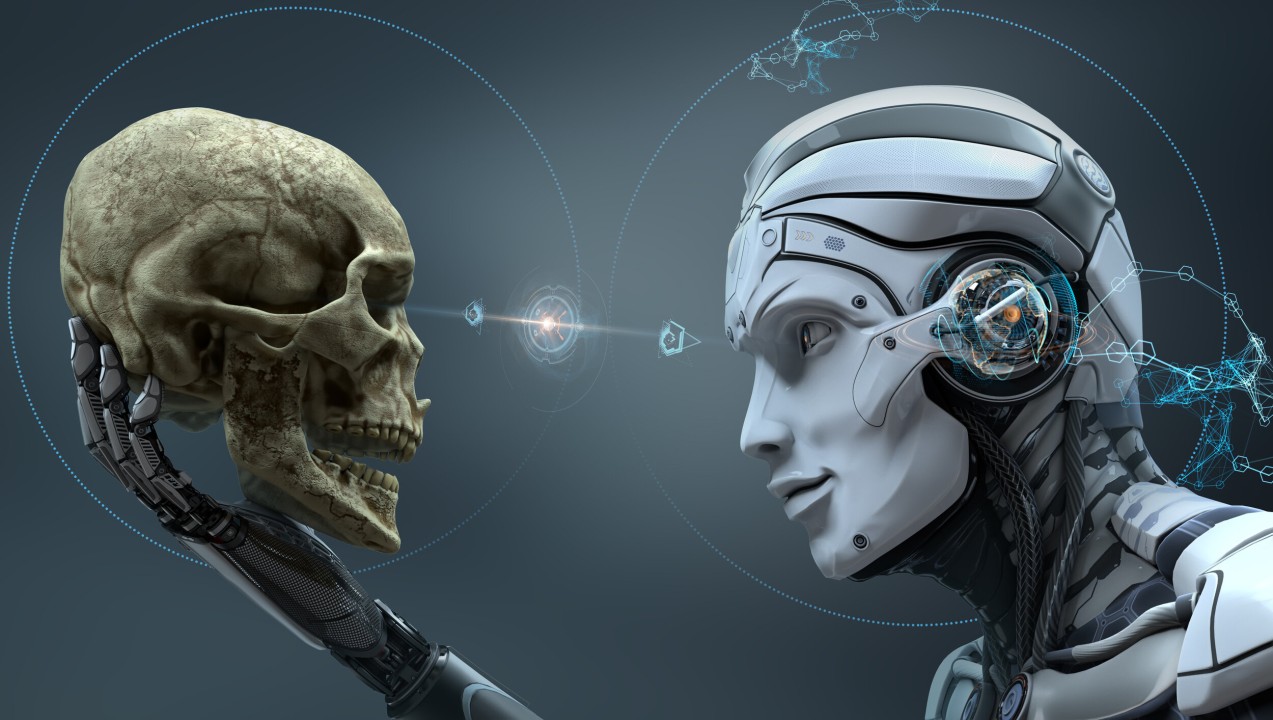As being witnessed Today, The Fourth Industrial Revolution is taking over the world as the Global Manufacturing Sector is becoming less and less dependent on Human Labour and Effort. Automation due to Artificial Intelligence, Robotics, and the IoT are all taking over. It is Predicted that by 2035, AI and Robotics are expected to increase the worker productivity by over 40% which will drastically reduce a company’s overhead expenses and minimize Human error. Global active industrial robot inventories are up approximately 14% year-on-year, as automation continues to develop new kinds of robots with enhanced utility and functionality. As a result, there’s a huge demand for Industrial Robotics Engineers and Experts throughout the world. So, keeping That in Mind We have Crafted this Blog Guiding You Through the Process of Becoming a Robotics Engineer in 2024.

What Exactly is Robotics Engineering?
Robotics Engineering is a branch of engineering concerned with building Machines that mimic human behaviour. A robotics engineer designs applications or autonomous robots for applications in industries such as medical robotics, autonomous vehicle, consumer electronics and more. These engineers combine mechanical, electrical and computer engineering skills to build machines that can do things on their own or at least partially on their own. The aim of robotics engineering is usually to program machines to carry out repetitive, hazardous or unhealthy tasks. Robotics engineers are at the cutting edge of innovations that can transform industries, improve daily life, and shape future robotics and intelligent systems.
What is the Job of a Robotics Engineer?
A Robotics Engineer’s Job Duties include:
- Conceptualizing and designing: To make their vision of a robot come to life, they will generate ideas, make sketches, and use simulations. They take into account things like the robot’s intended use, its range of motion, and the choice of material.
- Building and assembly: Using a variety of tools and fabrication techniques, they physically construct the robot in collaboration with technicians and other engineers.
- Programming and control: To make a robot move, sense its environment, and make decisions, robotics engineers create software programs. This is what gives a robot life.
- Testing and fine-tuning: To guarantee optimal performance, they put the robot through a rigorous testing program, pinpoint areas for improvement, and adjust its functionalities.
- Deployment and maintenance: Finally, they oversee the implementation of the robot in its designated environment, be it a factory floor, a hospital, or even space. They also play a vital role in maintaining and troubleshooting the robot throughout its lifespan.
Areas of expertise within the field of Robotics Engineer:
There are many specializations in robotics engineering to suit your interests and abilities:
- Mobility and locomotion: This domain deals with the ability of the robot to move, be it swimming, flying, or walking.
- Sensing and perception: These engineers specialize in developing the necessary sensor technologies because it is imperative that robots be able to “see” and “sense” their surroundings.
- Operator interface: They create intuitive user interfaces that make communication between people and robots easy.
- Manipulators and effectors: These engineers create the “hands” and “arms” that enable robots to interact with their surroundings.
- Programming: Programming experts create the software that gives robots their sense of motion, decision-making, and general functionality.

How to Become a Robotics Engineer in 2024?
The field of Robotics is booming, and there are several paths you can take to become a robotics engineer in 2024. Let’s explore these options:
Formal Education:
- University: This is the most common path, offering bachelor’s and postgraduate degrees in various fields relevant to robotics, including:
- Artificial intelligence and robotics
- Mechatronics
- Robotics engineering
- Mechanical or electronics engineering
- Computer science or mathematics
- (For AI development) Psychology or cognitive science
- College: Consider college courses that can lead to a career as a robotics technician, such as:
- Electronic systems engineering
- Computing
- Advanced manufacturing engineering
- Electrical or electronic engineering
- Further training can then qualify you as a robotics engineer.
Entry Requirements:
- University: Typically requires 2-3 A-levels (or equivalent) in math and physics, and a degree in a relevant subject for postgraduate study.
- College: Entry requirements vary, so research specific courses.
Alternative Entry:
- Apprenticeship: Pursue a Level 6 Degree Apprenticeship to specialize in fields like:
- Robotics Engineering
- Control and Technical Support Engineering
- Electro-Mechanical Engineering
- Embedded Electronic Systems Design and Development Engineering
- Manufacturing Engineering
- These typically take 3-5 years to complete.
- Work your way up: Start as a robotics technician or junior engineer, and then pursue higher education qualifications while gaining experience.
- Develop your skills: Join robotics engineering groups and participate in design competitions to gain practical experience and knowledge.
How Much Does a Robotics Engineer Make in the US?
The average total compensation for a Robotics Engineer in the US is $137,908 per year. This includes a base salary of $127,090 and an average additional cash compensation of $10,818.
It’s important to note that this is an average figure, and individual salaries can vary based on several factors, including:
- Experience: More experienced engineers typically command higher salaries.
- Education: Higher educational qualifications may lead to increased earning potential.
- Location: Salaries can differ significantly depending on the city and state.
- Industry: The specific industry a robotics engineer works in can also influence their salary.
- Company size and performance: Larger companies and those with strong performance may offer higher salaries.
So, This was our take on The Complete Guide to Becoming a Robotics Engineer in 2024.
You Can Also Read: Your Guide to The Best AI Courses in 2024.
Common FAQs:
1. Does Robotics have scope in the future?
Yes, robotics has a significant and expanding scope in the future. The field is expected to experience tremendous growth due to advancements in AI, machine learning, and other related technologies.
2. What is the future scope of Robotics Engineering?
The future of robotics engineering promises extensive application in various fields, including:
- Manufacturing: Increased automation and efficiency.
- Healthcare: Assisting with surgery, rehabilitation, and elder care.
- Agriculture: Automation of tasks like harvesting and crop monitoring.
- Logistics and transportation: Autonomous vehicles and delivery robots.
- Exploration and space research: Robots for deep-sea exploration and space missions.
3. What is the salary of a Robotic Engineer in the future?
Predicting the exact salary is difficult, but due to the growing demand and specialized skillset, robotic engineers are expected to command competitive salaries in the future. However, factors like experience, location, and industry will still play a role in individual salaries.
4. Is it hard to get a job in Robotics Engineering?
While robotics engineering requires strong technical skills and qualifications, the growing demand creates favourable job prospects. However, competition for specific positions might be high, especially as the field matures.
5. What are 10 disadvantages of robots?
It’s important to consider both the advantages and disadvantages of robots:
- High initial cost: Designing, developing, and implementing robots can be expensive.
- Job displacement: Concerns exist about robots replacing human jobs in certain sectors.
- Ethical considerations: Issues like robot safety, bias in AI algorithms, and potential misuse require careful ethical consideration.
- Limited adaptability: Robots often struggle with tasks requiring flexibility, creativity, and complex decision-making.
- Reliance on human input: Robots still require human design, programming, and maintenance.
- Potential for misuse: Malicious actors could potentially misuse robots for harmful purposes.
- Environmental impact: Manufacturing and using robots can have environmental consequences, requiring responsible practices.
- Social and psychological impact: Widespread use of robots may impact human interaction and social structures.
- Dependence on technology: Over-reliance on robots can create vulnerabilities in case of system failures.
- Long-term societal impacts: The long-term societal and economic effects of widespread robot adoption require careful analysis and discussion.
6. Which field is best for Robotics?
The “best” field for robotics depends on your interests and career goals. Robotics plays a role in various sectors, so you can choose based on your passion, be it healthcare, manufacturing, or space exploration.
7. Which company is best for Robotics?
Several companies are at the forefront of robotics, but the “best” depends on your personal preferences and career aspirations. Researching leading companies in your chosen field of robotics application is recommended.
8. Is there a high demand for Robotics Engineers?
Yes, the demand for robotics engineers is growing due to the expanding applications of robotics. However, the specific demand might vary depending on the industry and location.
9. Will AI replace Robotics Engineers?
While AI plays a crucial role in robot development and operation, it’s unlikely to completely replace robotics engineers. Rather, AI and robotics will likely complement each other, with engineers still needed for design, programming, maintenance, and ethical considerations.
10. Will there be robots in 2025?
Yes, there will definitely be robots in 2025. The continued development and implementation of robots across various sectors is likely to continue at an accelerated pace.



